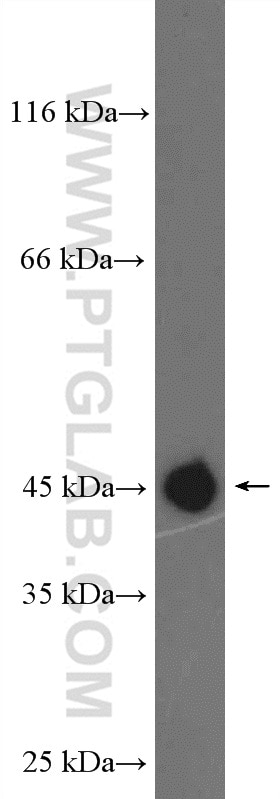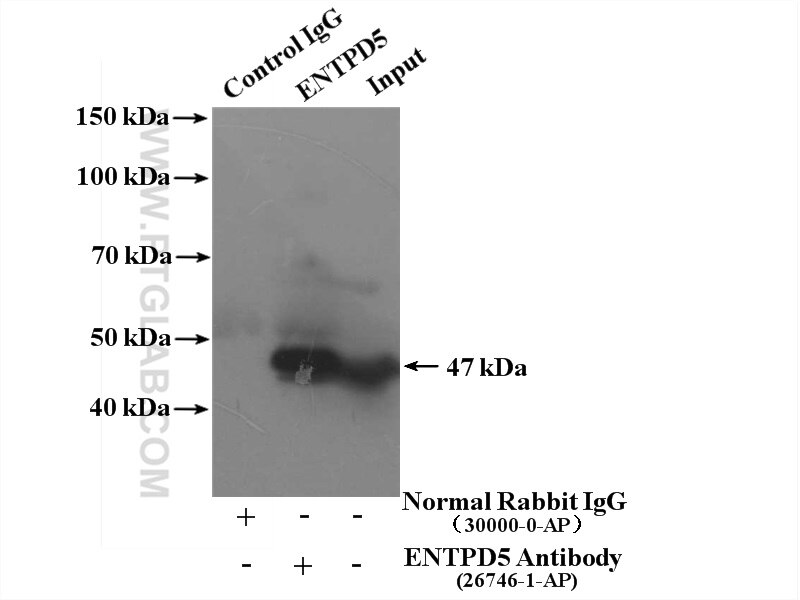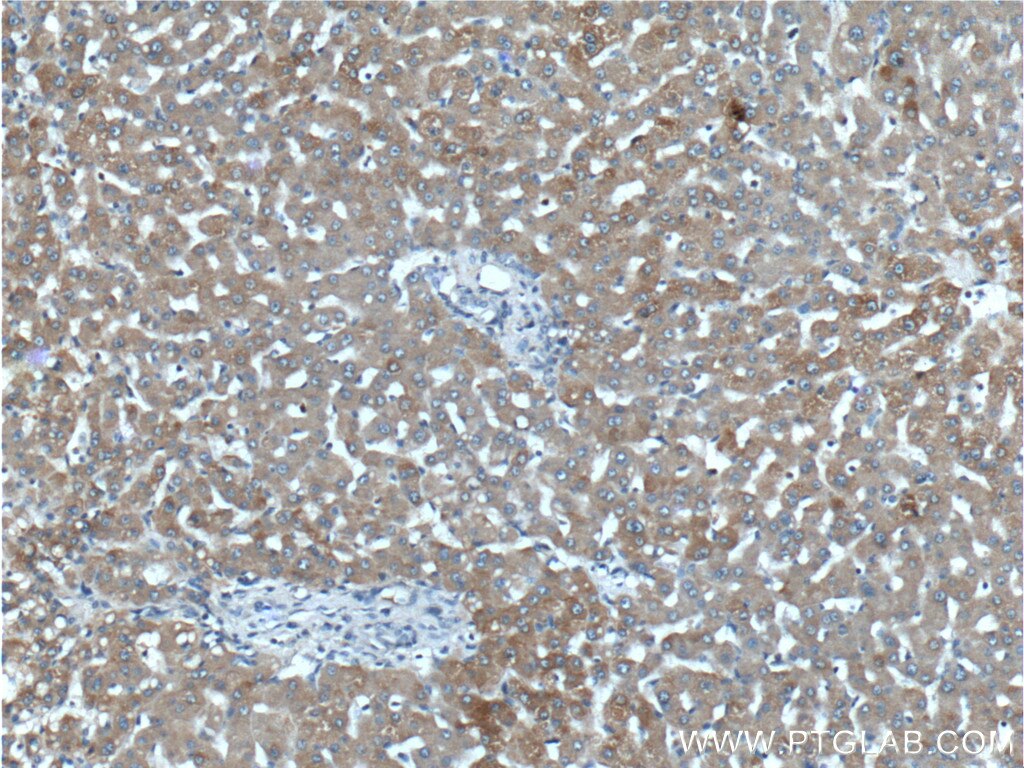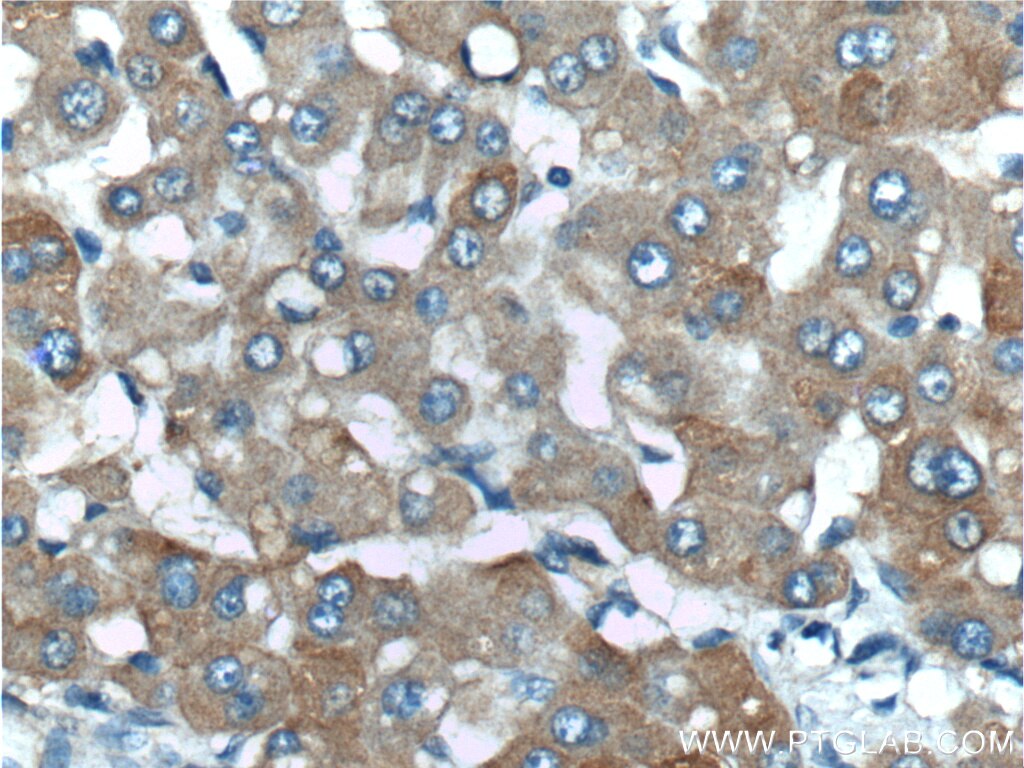Tested Applications
| Positive WB detected in | mouse liver tissue |
| Positive IP detected in | mouse liver tissue |
| Positive IHC detected in | human liver tissue Note: suggested antigen retrieval with TE buffer pH 9.0; (*) Alternatively, antigen retrieval may be performed with citrate buffer pH 6.0 |
Recommended dilution
| Application | Dilution |
|---|---|
| Western Blot (WB) | WB : 1:500-1:2000 |
| Immunoprecipitation (IP) | IP : 0.5-4.0 ug for 1.0-3.0 mg of total protein lysate |
| Immunohistochemistry (IHC) | IHC : 1:50-1:500 |
| It is recommended that this reagent should be titrated in each testing system to obtain optimal results. | |
| Sample-dependent, Check data in validation data gallery. | |
Product Information
26746-1-AP targets ENTPD5 in WB, IHC, IP, ELISA applications and shows reactivity with human, mouse samples.
| Tested Reactivity | human, mouse |
| Host / Isotype | Rabbit / IgG |
| Class | Polyclonal |
| Type | Antibody |
| Immunogen | ENTPD5 fusion protein Ag25022 Predict reactive species |
| Full Name | ectonucleoside triphosphate diphosphohydrolase 5 |
| Observed Molecular Weight | 47 kDa |
| GenBank Accession Number | BC130485 |
| Gene Symbol | ENTPD5 |
| Gene ID (NCBI) | 957 |
| RRID | AB_2880619 |
| Conjugate | Unconjugated |
| Form | Liquid |
| Purification Method | Antigen affinity purification |
| UNIPROT ID | O75356 |
| Storage Buffer | PBS with 0.02% sodium azide and 50% glycerol, pH 7.3. |
| Storage Conditions | Store at -20°C. Stable for one year after shipment. Aliquoting is unnecessary for -20oC storage. 20ul sizes contain 0.1% BSA. |
Background Information
Ectonucleoside triphosphate diphosphohydrolases (NTPDases) are enzymes that are involved in the degradation of di- and triphosphate nucleotides, with important implications in several biological processes that underlie a number of physiological and pathological conditions, including cancer [PMID: 34272651]. ENTPD5 gene, hydrolyzes UDP to UMP and is mainly localized inside the cell, where it plays a critical role in the N-glycosylation and proper folding of proteins in the endoplasmic reticulum [PMID: 21074248]. It can also be secreted into the extracellular space and can work as a soluble enzyme upon cleavage of a signal peptide [PMID: 15698960]. NTPDase5 is often deregulated in cancer, likely as a consequence of TP53 mutations, where it promotes and favours tumour progression and metastasis [PMID: 27956623]. Furthermore, short NPTDase5 peptides were detected in normal and tumour cell lines, recalling the mt-PCPH oncoprotein, a truncated form of the enzyme originating from a single-nucleotide deletion described in Syrian hamster and lacking enzymatic activity [PMID: 27956623].
Protocols
| Product Specific Protocols | |
|---|---|
| WB protocol for ENTPD5 antibody 26746-1-AP | Download protocol |
| IHC protocol for ENTPD5 antibody 26746-1-AP | Download protocol |
| IP protocol for ENTPD5 antibody 26746-1-AP | Download protocol |
| Standard Protocols | |
|---|---|
| Click here to view our Standard Protocols |









